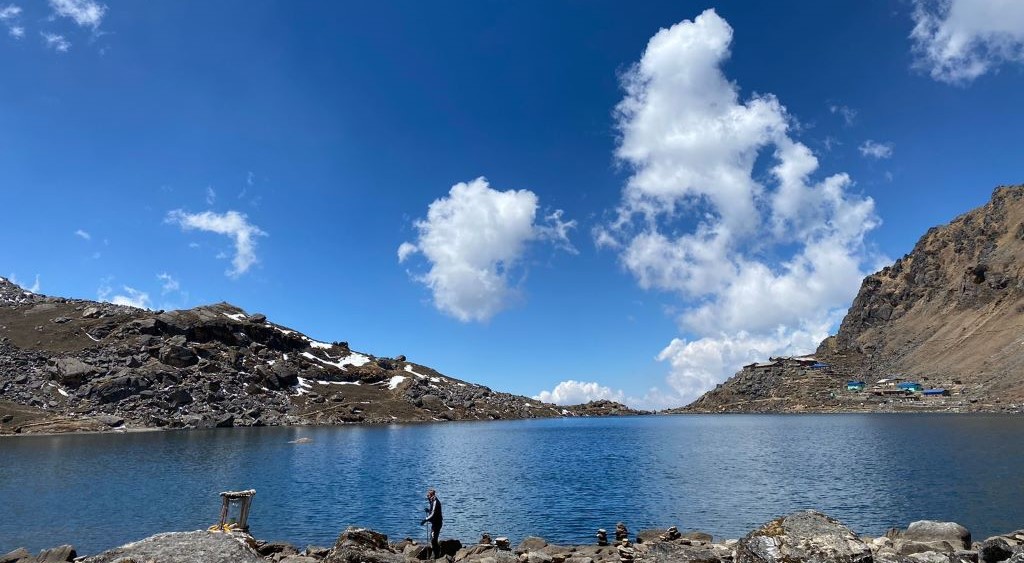

Ecotourism Guidelines for Responsible Travel
Ecotourism Guidelines for Responsible Travel
Tourism is one of the most powerful ways to explore the beauty of nature, discover diverse cultures, and connect with communities around the world. Yet, it also carries the risk of harming the very resources that attract travelers in the first place. Ecotourism provides an alternative, an approach to travel that respects the environment, values cultural heritage, and ensures that future generations can also experience unspoiled destinations. By following clear guidelines, both travelers and the tourism industry can minimize negative impacts and maximize positive contributions to conservation and development.
Guidelines for Ecotourists
Responsible ecotourism begins with individual travelers. The guiding principle is to leave only footprints and take away only memories. Nothing should be left behind: no litter, garbage, leftover food, or cigarette butts. Sites should remain as clean and natural as they were before human presence. Visitors should stay on designated trails, avoid shortcuts, and take care not to step on vegetation. Camping should be restricted to designated areas, and if none exist, travelers should set up camp away from water sources.
Traveling in small groups helps reduce pressure on fragile ecosystems. Large gatherings often create noise, disturb wildlife, and damage vegetation. Taking only photographs ensures that plants and animals are not harmed. Campfires should be avoided in areas where wood is scarce, and choosing hotels or lodges that use kerosene or gas rather than wood helps conserve forests.
Ecotourists must not participate in illegal hunting or fishing and should avoid buying endangered plants or animals. Respecting wildlife means keeping a safe distance so animals feel secure. Travelers should also select services from hotels and tour operators who promote environmentally friendly practices. Respecting local traditions is just as important; asking permission before taking photographs, dressing in ways that do not offend, and showing sensitivity to cultural norms are simple but powerful gestures of respect.
Nature should be accepted in its original form without being altered for convenience. Involving local communities in tourism activities allows them to benefit and builds support for conservation. Respecting religious places is a sign of cultural sensitivity, and instead of encouraging begging, travelers can donate to schools, charities, or clinics. Supporting local enterprises and buying traditional handicrafts allows the financial benefits of tourism to flow directly into the community.
Guidelines for Government
Governments hold a critical role in shaping sustainable tourism. Developing ecotourism policies and incorporating them into broader tourism strategies ensures that conservation is taken seriously at a national level. Laws may need to be amended to protect natural and cultural heritage more effectively. Identifying ecotourism sites and arranging training programs for operators, hotels, and guides are essential steps.
Including ecotourism in development plans helps safeguard natural areas and cultural heritage. Data collection and record-keeping build an inventory of resources, which is vital for long-term planning. Governments should also provide education and information to raise awareness about ecotourism among both locals and visitors. Developing facilities in ecotourism sites should be done carefully to enhance the visitor experience without damaging the environment.
Partnerships with private businesses, non-governmental organizations, and international agencies strengthen ecotourism initiatives. At the same time, strong regulation and monitoring are necessary. Environmental Impact Assessments (EIA) should be compulsory for all tourism projects, with careful attention to the carrying capacity of each site. Certain fragile areas may require restricted access, while other zones can be developed responsibly.
Zoning destinations into open and restricted areas allows for better management of resources. Increasing staff in areas with high tourist activity ensures that impacts are controlled. Revenue from tourism can support sustainable development schemes, creating self-financing conservation models. Involving all stakeholders in decision-making ensures that tourism is fair and inclusive. Every department related to tourism should understand sustainable development and enforce laws to prevent illegal trade in natural and cultural treasures.
Guidelines for Hotels and Restaurants
Hotels and restaurants form the backbone of the tourism experience, and their role in ecotourism is vital. Accommodation should be provided in ways that do not waste local resources or degrade the environment. Facilities should comply with environmental regulations and, where possible, reflect local culture in architecture and interior design. Energy-saving devices and renewable energy sources should be adopted to reduce environmental footprints.
Waste management is a priority. Solid waste must be treated properly, recycling encouraged, and single-use items like Styrofoam and excess paper avoided. Restaurants should serve local food, offering travelers authentic flavors while supporting local farmers and reducing transportation impacts.
Hotels and restaurants should contribute to conservation and development in their communities, offering financial and technical help where possible. Guidebooks and brochures can help visitors learn about the local area, while facilities should avoid keeping exotic or endangered animals as attractions. Aligning business operations with eco-friendly practices ensures that tourism supports sustainability.
TES Guidelines
The Ecotourism Society (TES) offers additional principles for sustainable tourism. Preparing travelers before departure helps them minimize their impacts on sensitive environments and cultures. Education about encounters with local communities, native animals, and plants is essential. Impacts can be minimized through briefings, literature, and leading by example. Corrective actions should be taken when necessary.
Respect for cultures should also be emphasized, with travelers guided on appropriate behavior. Group sizes should remain small to avoid overwhelming destinations. Areas that are already over-visited or poorly managed should be avoided. Managers, staff, and employees must be trained to understand and implement company policies that prevent environmental and cultural harm.
Training should also include communication skills to better manage clients in sensitive settings. Tour companies should contribute to the conservation of regions they visit, create local employment opportunities, and offer accommodations that are not wasteful or destructive. Facilities should encourage learning about nature and promote respectful interactions between travelers and host communities.
The concept of “green sells” reflects how modern travelers prefer services that do not harm the environment. Ecolabels, or green certifications, assure consumers that products and services meet high environmental standards. They help raise awareness, encourage best practices, and provide transparency through monitoring and public reporting. At the same time, ecolabels reduce resource use and operating costs, serving as both a marketing tool and an environmental management system.
Conclusion
Ecotourism is not simply about travel, it is about responsibility. By following guidelines for travelers, governments, hotels, and operators, tourism can become a force for conservation rather than destruction. Respecting cultures, protecting nature, and supporting communities are the pillars of sustainable travel.
At this stage, many organizations and travel companies are adopting these principles. Among them, Khushi Travel and Consulting Group is committed to promoting eco-friendly practices, supporting local communities, and guiding travelers toward more meaningful journeys. With the right approach, every journey can become a way to protect the planet while creating lasting memories.
We are associated with












